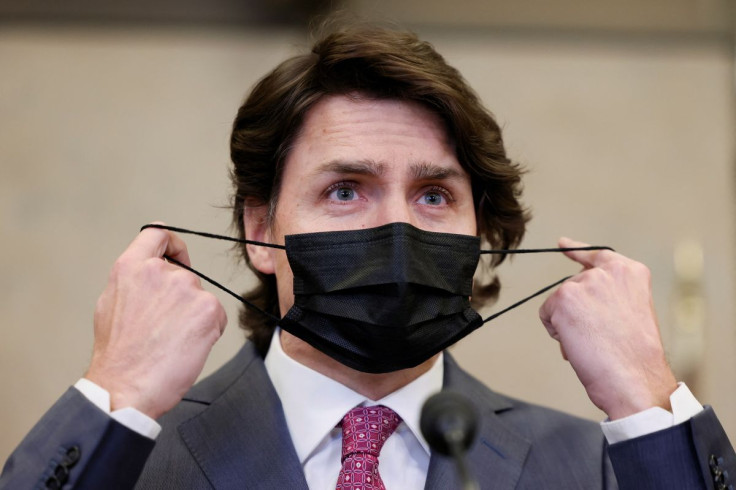Ottawa Protesters Dig In After Canada Invokes Emergency Powers

Defying an emergency order to disperse, protesters in trucks and other vehicles vowed on Tuesday to stand their ground outside the Canadian parliament until the government lifts vaccine mandates and other COVID-19 restrictions.
Prime Minister Justin Trudeau on Monday became only the second Canadian leader to invoke the Emergencies Act in peacetime, giving the government broad powers to end border blockages that have hit trade and paralyzed downtown Ottawa.
A border crossing in Manitoba remained blocked on Tuesday.
"We're not leaving. We've dug in this long," said Gord, a cross-border truck driver from Manitoba who declined to give his last name. The use of emergency powers "is just another scare tactic," he said while parked in front of parliament in Ottawa.
As he spoke in his idling truck, another protester came by to offer him breakfast and a red rose. He says he wants the vaccine mandates and COVID-19 restrictions dropped, and that he and the other protesters are willing to stand their ground no matter what.
Danny Digenova, a protester from Montreal who stood near the entrance to parliament, said he was not concerned about the emergency powers and he would stay until restrictions are lifted.
Trudeau acted after concluding that law enforcement could not cope with the protesters, especially in Ottawa.
"This illegal occupation needs to end ... the measure of success will be, can we get our supply chains back? Can we end the disruption to livelihoods of people who rely on trade to the United States?" Trudeau told reporters.
On Tuesday morning, protesters in Coutts, Alberta, planned to end their protest, the Canadian Broadcasting Corp reported, after 13 people were arrested on Monday with a cache of weapons, ammunition and bullet-proof vests.
The Ambassador Bridge, a key trade corridor to the United States, was cleared on Sunday. Police said 46 people were arrested.
As part of the Emergencies Act, Finance Minister Chrystia Freeland announced a slew of measures to choke off the truckers' funding, saying they could lose their commercial licenses, insurance and access to bank accounts.
"I suspect following the money and then turning the money off is probably a good strategy and not one that's easily done ... temporary short-term measures that wouldn't normally be acceptable can be put in place," Jack Lindsay, department chair for applied disaster and emergency studies at Brandon University in Manitoba.
Doug Ford, the premier of Ontario, the most populous of the 10 provinces, said he backed Trudeau's decision.
The last leader to invoke such measures was Trudeau's father, Liberal Prime Minister Pierre Trudeau, who clamped down in 1970 after a splinter group of militant Quebec separatists kidnapped a provincial minister and a British diplomat.
But whereas his father had broad support, four provinces opposed Justin Trudeau's decision on the grounds they can cope with the protests.
The Canadian Civil Liberties Association came out against the government's decision Monday, saying the standard for invoking the Emergencies Act has not been met.
© Copyright Thomson Reuters 2024. All rights reserved.







